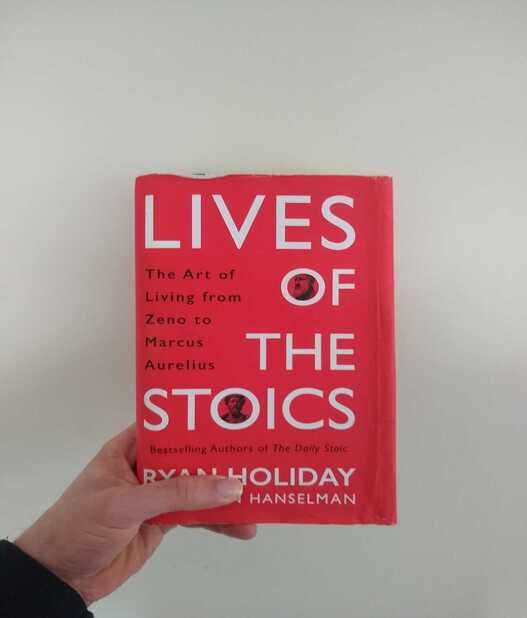Finding Stability Through Philosophy: A Personal Journey with Anxiety
Written on
Chapter 1: Confronting Uncertainty
Uncertainty is a feeling I have known intimately for as long as I can remember. It's a heavy burden, pressing against me and making me question my place in the world. Living with social anxiety brings a constant fear of slipping back into old, unhealthy patterns, compounded by the unpredictable nature of life itself.
Uncertainty and I have been companions in this journey, often grappling with each other in the arena of existence. Despite our ongoing struggle, I have sought tools that could help me regain control. As I approach my thirties, I believe I have finally discovered the most effective tool: philosophy.
This piece delves into themes of anxiety, depression, and the life-changing influence that philosophical thought can have on one’s mental state.
The Roots of My Social Anxiety
To provide some context, I had a loving upbringing. My parents were supportive, and I grew up in a serene suburb of Manchester. I was a child who genuinely believed in the goodness of others.
In primary school, I had friends I thought would be lifelong companions. However, high school brought an unexpected and harsh reality. I faced bullying, and the friends I trusted turned away from me, leaving me bewildered.
Even after changing schools and forming new friendships, the scars remained, and social anxiety took hold. At my lowest point at fourteen, I attempted to take my own life in a school restroom—a moment that reflects the deep struggles I faced.
Throughout my twenties, the grip of social anxiety persisted. Externally, everything seemed fine, but internally, I felt isolated, even in the company of those who knew about my challenges.
Thoughts like, "Why are you acting this way? People will judge you if you remain silent," spiraled through my mind while I navigated various jobs in marketing and copywriting. The pressure of social interaction often proved overwhelming.
Then the pandemic struck, adding further chaos to an already tumultuous existence.
The Transformative Power of Philosophy
The early stages of the COVID-19 pandemic were particularly challenging. With inconsistent government guidelines and extended isolation from loved ones, my anxiety surged, and I faced redundancy yet again.
In this turmoil, I questioned my worth as a writer and contemplated a complete career change. Amidst these doubts, I stumbled upon a book that altered my perspective: Lives of the Stoics by Ryan Holiday.

Photo credit: the author
This book introduced me to the Stoic philosophy, showcasing figures like Marcus Aurelius, who, despite personal struggles, managed to lead an empire. I was captivated by the resilience of ancient Stoics like Zeno and Seneca, and I began to see my own struggles mirrored in their teachings.
Through Stoicism, I learned to reshape my mindset and cultivate a renewed passion for copywriting. Empowered by this philosophical framework, I ventured into self-employment, focusing on integrating philosophy with content marketing. I believe that every business has its own philosophy, and content serves as the medium through which it is expressed.
In the short time since I became self-employed, I have gained invaluable insights.
Four Key Philosophical Lessons
The embrace of philosophy has unveiled numerous lessons, four of which stand out as particularly impactful:
Create an Inner Sanctuary
The concept of the inner citadel, derived from Stoic thought, serves as a mental retreat during turbulent times. This mental space allows me to confront negative thoughts and recognize triggers of my social anxiety. I've learned to forgive past grievances and focus on the present moment.
Adopt a Broader Perspective
The Stoic exercise known as The View From Above encourages me to detach and observe my life from a great height, enabling a clearer understanding of my place in the larger scheme of things.
Engage in Journaling
Journaling has become a therapeutic outlet for me. I jot down three positive experiences each day or reflect on areas for improvement. Inspired by Michel de Montaigne, I practice free-flowing writing, which serves as a balm for my psyche.
Cultivate Community and Virtue
Many philosophical traditions emphasize the importance of community and friendship. I strive to embody Stoic virtues—justice, courage, wisdom, and temperance—in my daily interactions, enhancing both my life and the lives of those around me.
Closing Reflections
I still grapple with uncertainty and social anxiety. I remain unsure about the future of my business and what lies ahead. Yet, as Socrates famously said, “the only thing I know is that I know nothing.”
What I do know is that I have found a meaningful path that resonates with me, offering a structured approach to managing anxiety and propelling myself forward.
Philosophy has become my remedy for anxiety, and I intend to immerse myself in its teachings for as long as possible.
If you found this exploration of philosophy intriguing and wish to delve deeper into Stoicism, consider downloading the free PDF titled A Stoic’s Guide To Content Marketing. This resource covers Stoic history, practical techniques for writing, and various marketing insights.
A Stoic's Guide To Content Marketing
"As long as you live, keep learning how to live." - Lucius Seneca
Philosophy is a universal concept that has stood the test of time...
stoicathenaeum.com

Follow The Orange Journal to stay updated on future posts. If you're passionate about writing on self-improvement and personal development, find out how to contribute as a writer here.
Explore how Kierkegaard's philosophy provides insights into managing anxiety and understanding the human condition.
A deep dive into Kierkegaard's concept of anxiety and its relevance to modern mental health discussions.